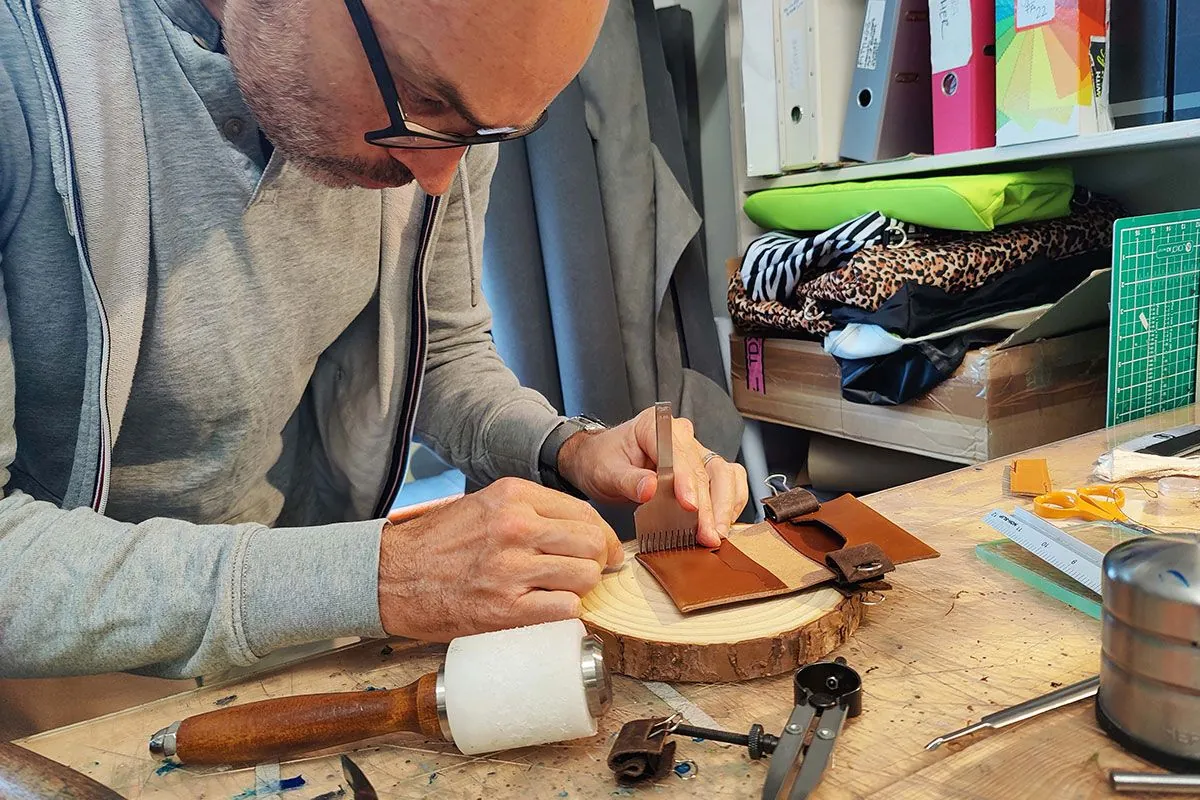In a striking display of discontent, migrant workers from Italy's famed Tuscany region recently protested outside Montblanc's Geneva store, exposing the darker side of luxury goods production. The demonstration, occurring near Richemont's shareholder meeting, highlighted ongoing labor issues within Italy's prestigious fashion industry.
The protesters accused Montblanc of terminating its contract with supplier Z Production due to improved working conditions. Zain Ali, a 23-year-old Pakistani worker, stated, "Montblanc ended the contract because we wanted to work eight hours a day, five days a week as legal workers." However, Montblanc countered that the termination resulted from the contractor's failure to meet conduct standards.
This incident is part of a broader issue plaguing Italy's luxury goods sector. Investigations have uncovered sweatshop-like conditions in workshops near Milan, affecting brands such as Dior, Giorgio Armani, and Alviero Martini. The problem extends beyond Milan, with sources indicating similar practices in Tuscany's workshops.
Alessandro Lessi, a former Z Production employee, revealed that migrant workers often endured long hours. "I left at 6 PM, but everyone else stayed on," he explained, noting the prevalence of workers from China, Pakistan, and Bangladesh.
The luxury industry's complex supply chain makes monitoring difficult. Carlo Capasa, chairman of the National Fashion Chamber, stated, "An average brand has 7,000 suppliers. If each supplier has two sub-suppliers, it's probably another 14,000. I want to see who can do 21,000 audits a year... It's impossible."
Personal accounts from migrant workers paint a grim picture. Abbas Muhammad, who arrived in Italy in 2015, described grueling 14-hour shifts: "My legs hurt so much, I couldn't sleep at night. I couldn't go to the toilet anymore, or sit down." Similarly, Arslan, another Pakistani migrant, reported working over 12 hours a day, six days a week.
The economic pressures driving this exploitation are significant. Court documents revealed that one Dior contractor charged as little as €53 per handbag, against a retail price of €2,600. This vast disparity highlights the financial incentives for cutting corners on labor practices.
Authorities and industry leaders are attempting to address these issues. Several luxury brands have been placed under judicial administration, and investigations into more fashion brands are ongoing. LVMH, Dior's parent company, has pledged to strengthen audits and increase direct control over production.
As the luxury goods market continues to grow, with global sales exceeding $300 billion in 2023, the industry faces increasing pressure to ensure ethical production practices. The challenge lies in balancing the demand for exclusive, handcrafted items with fair labor conditions and transparency in the supply chain.
"The remuneration costs for work cannot fall below certain levels."
This statement underscores the fundamental conflict between maintaining Italy's renowned craftsmanship and competing with lower-cost production elsewhere. As consumers become more conscious of ethical production, luxury brands must navigate these challenges to maintain their prestige and integrity in the global market.
